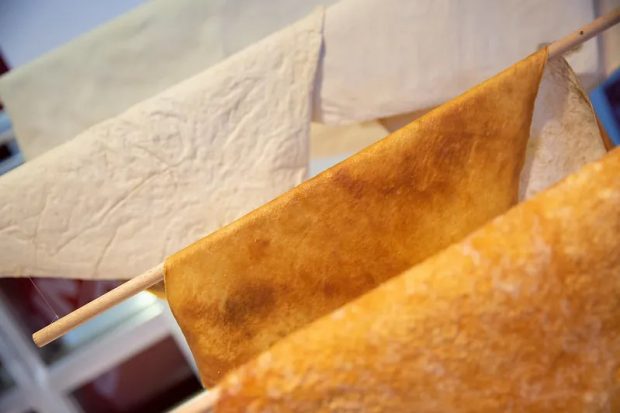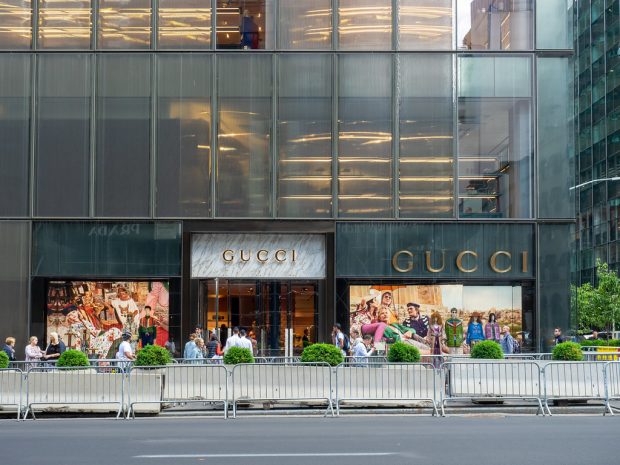
Artist Phil Ross’s MycoWorks made history by unveiling the first-ever commercial mycelium-based synthetic leather production facility on September 20, 2023.
Phil Ross, a painter and sculptor, graduated from the San Francisco Art Institute. Throughout his unconventional career path, he has consistently intertwined his art with a peculiar fascination for mushrooms. From retreats to hospice, Ross’s diverse experiences led him to discover the healing properties of mushrooms, laying the foundation for his innovative business.
Inspired by Paul Stamets’s book, Ross established a home laboratory to experiment with mycelium behavior. Recognizing mycelium’s potential as a building material, he showcased his creations, attracting attention from both the media and the construction industry. This pivotal moment marked the birth of MycoWorks, with Ross and artist/writer Sophia Wang as co-founders.
READ: Empty Cities: Pandemic’s Influence on Commercial Real Estate in New York and Other Areas
Transitioning away from construction, MycoWorks ventured into diverse markets, including a groundbreaking exploration into the footwear industry. Recognizing the potential for mycelium-based materials in creating artificial leather, MycoWorks set its sights on revolutionizing the leather industry.
In their search for funding, MycoWorks approached the biotech accelerator IndieBio. Despite a hiccup during the presentation, Phil and Sophia secured funding for their project, which they named Reishi, and focused on using mycelium as a material for artificial skin. The biomaterial’s potential was showcased, attracting attention from global fashion brands.
Entrepreneur Matt Scullin, now MycoWorks’ CEO, played a pivotal role in expanding the team and securing substantial funding. Outgrowing their small San Francisco workshop, MycoWorks established a production facility and headquarters in Emeryville, California, poised for a groundbreaking future.

Renowned hat designer Nick Fouquet embraced Reishi, crafting his first hat from the innovative material within 24 hours. Even his seamstresses found it indistinguishable from genuine leather. General Motors joined MycoWorks as an investor, adding automotive industry recognition to the company’s growing popularity.
MycoWorks received an additional $125 million to construct a large-scale production plant.
The grand opening took place on September 20, featuring a 136,000-square-foot facility with a workforce of approximately 350 people, driven by escalating demand. The new plant, named Reishi, is set to produce over 1 million square feet annually, a substantial step forward, although comparatively small to the 31 billion square feet of natural leather produced during the same timeframe.
READ: Whose Wealth is Estimated at $100 Million or More: New Yorkers’ Neighbors on This List
Recognizing the environmental impact of leather production, MycoWorks positions Reishi as a sustainable alternative. Animal by-products, considered waste if not purchased by companies, contribute to landfill concerns. The initiative aligns with the broader goal of addressing environmental challenges outlined by Ingrid Andersen of the United Nations Environment Program.

The patented Fine Mycelium Technology used in creating Reishi involves combining mycelium with food, agricultural, or forestry waste. Cotton or other fibers are added to create desired textures, and the resulting sheet undergoes tanning and dyeing. Unlike traditional leather processing, Reishi avoids hair and fat removal, as well as chromium use.
The thickness, density, and pattern of faux leather can be customized, which gives it more flexibility compared to traditional hides. This plant-based biomaterial contributes to a reduced carbon footprint and minimized chemical waste, aligning with consumer preferences for exclusively plant-based materials.
While some mycelium companies, like Bolt Threads, use plasticizers for strength and elasticity, consumer demand for exclusively plant-based materials is on the rise. MycoWorks aims to capitalize on this trend, especially as Bolt Threads concludes its alternative leather production, strengthening MycoWorks’ market position.
READ: Prices Are Rising in Dubai: New Apartments and Projects To Be Completed By 2026
Currently priced comparably to premium leather, the creators of Reishi anticipate a reduction in cost as production scales up. This shift could democratize the use of Reishi in a broader range of products beyond luxury goods, where current offerings, such as a Hermès bag, command prices upwards of $4,200, and Nick Fouquet hats range from $775 to $1,675.
Like us on Facebook for more stories like this: